How much power did Queen Elizabeth II actually have? And will King Charles III have more or less?
- Oops!Something went wrong.Please try again later.
- Oops!Something went wrong.Please try again later.
Centuries ago, British monarchs lorded over their lands far and wide with absolute control, often to the detriment of the empire's far-flung subjects.
So what sort of power does a king or queen have in 2022? While the pomp and circumstance that are still associated with the monarchy remain impressive, from imposing palaces to shiny crowns, the reality is the role is largely ceremonial, experts say.
That may in fact be increasingly the case as King Charles III takes over for his mother, Queen Elizabeth II, who died Thursday at age 96, and aims for what many royal watchers expect to be a more stripped-down monarchy.
Prince Harry gives touching tribute: The Duke of Sussex honors his 'Granny' and her 'infectious smile'
A British monarch reigns, but does not rule
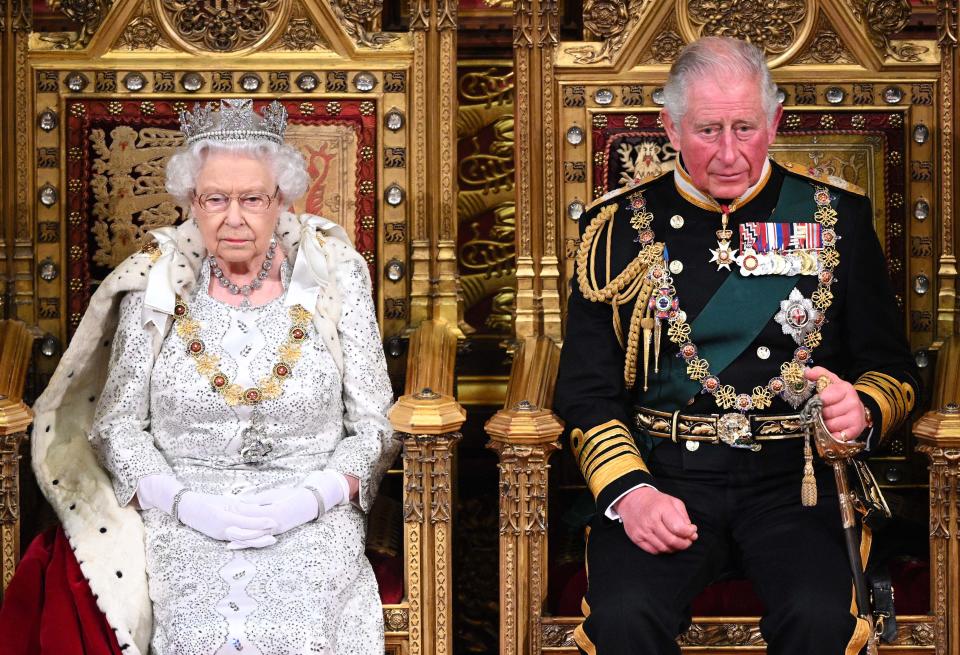
King Charles III, much like his mum before him, does not rule, he reigns. The key difference: He cannot issue decrees or anything that remotely resembles an edict. Rather, he is seen as a figurehead whose behavior reflects suitable decorum and grace.
The monarch remains the titular head of the Church of England and the armed forces. As described on the king's official website, royal.uk, the main task of the monarch is to undertake constitutional and representational duties developed over 1,000 years of British history. In sum, lots of ribbon-cutting.
"Although The Sovereign no longer has a political or executive role, he or she continues to play an important part in the life of the nation," the site says.
"The Sovereign acts as a focus for national identity, unity and pride; gives a sense of stability and continuity; officially recognizes success and excellence; and supports the ideal of voluntary service. In all these roles The Sovereign is supported by members of their immediate family."
Why some find it difficult to grieve: The complexity of mourning Queen Elizabeth II
The monarch's reserve powers are rarely invoked but remain on the books
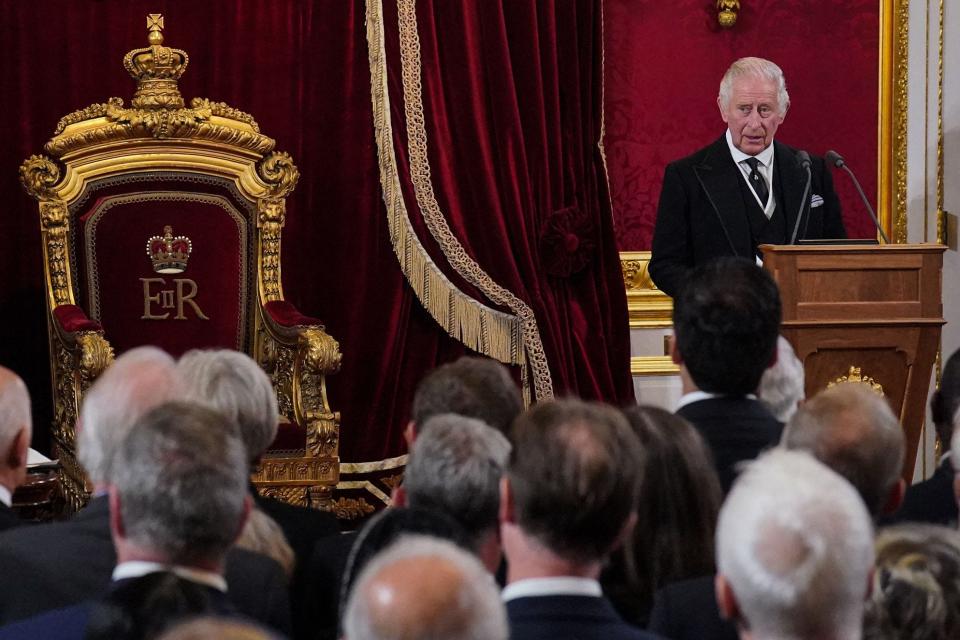
In 1689, Great Britain officially became a constitutional monarchy. That means the power to pass legislation resides with an elected body known as Parliament.
Queen Elizabeth (and now King Charles) possessed so-called reserve powers, also known as prerogative powers or personal prerogatives.
As the keeper of the nation's Constitutional flame, the monarch can use said powers to appoint and dismiss ministers; to summon Parliament, and give royal assent to bills passed by Parliament. Notably, the king or queen can remove a prime minister who will not resign, despite losing the confidence of Parliament's House of Commons.
While those powers seem vast, they come with asterisks. The royal assent to bills is considered automatically granted when it passes both Houses of Parliament, and any summoning is typically done on the advice of ministers, advice that is expected to be followed by the sovereign.
Camilla's new title, explained: What's the difference between queen and 'Queen Consort'?
Leading the Church of England is an important if ceremonial position
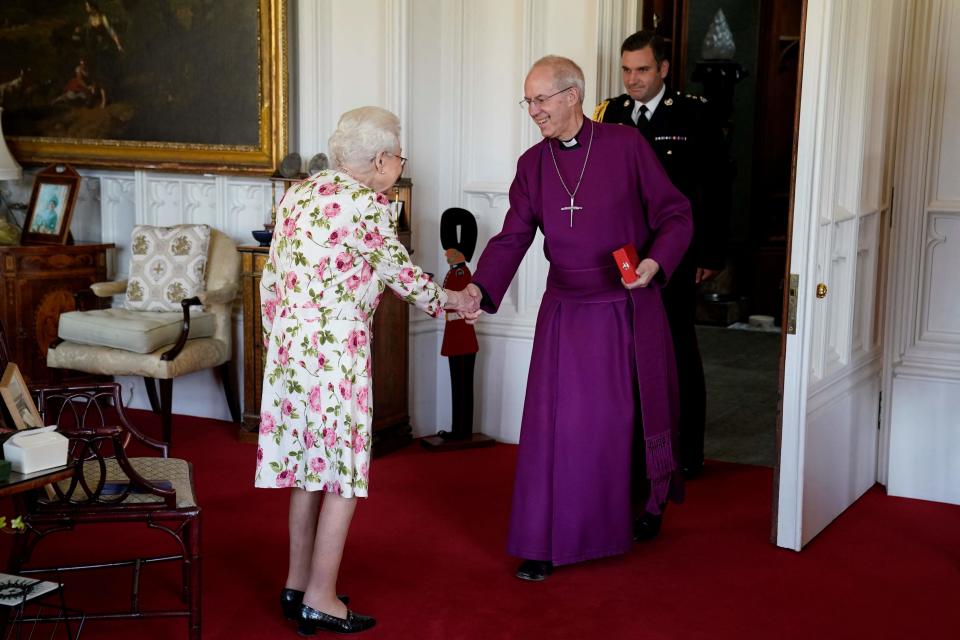
At her coronation in 1953, Queen Elizabeth, who drew comfort from her Christian faith, took an oath to "maintain and preserve inviolably the settlement of the Church of England, and the doctrine worship, discipline, and government thereof, as by law established in England." It is expected that Charles will carry on this tradition.
Since 1970, Elizabeth addressed a convocation of Church of England leaders, a body known as the General Synod, and continued to do so every five years for the rest of her reign, according to royal.uk.
Another of her traditions was distributing coins to pensioners every Maundy Thursday, the day Christians commemorate the Last Supper of Jesus. She did so at churches and cathedrals through the realm.
All the queen's corgis: Family tree shows Elizabeth's lifelong passion for signature dogs
The sovereign presides over the armed forces but defers decisions to professionals
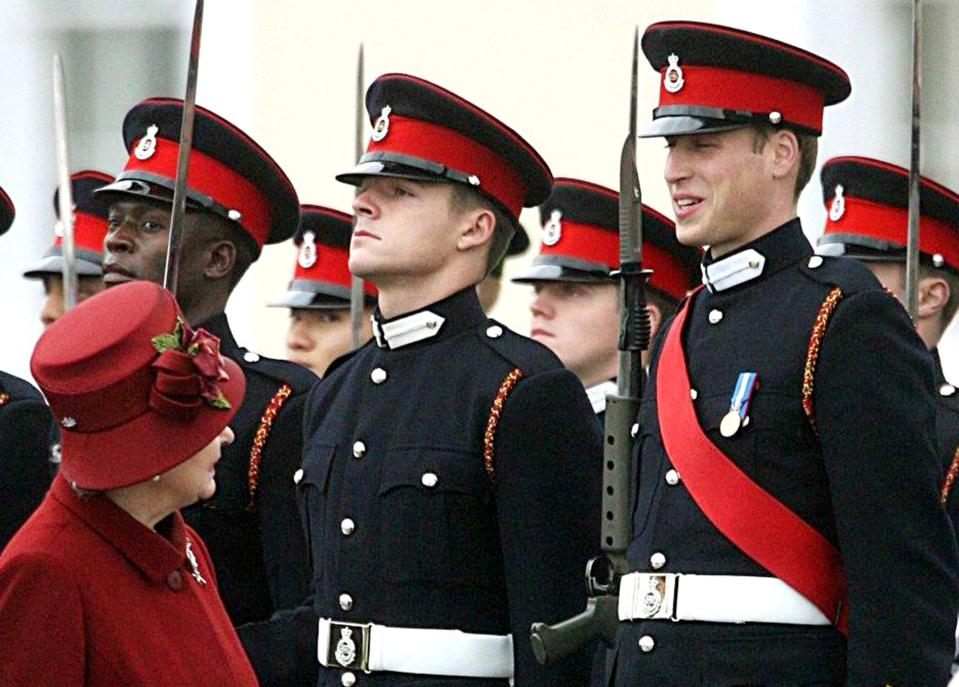
The king or queen is the titular leader of the British Armed Forces, and military members – who over the years have included many members of the House of Windsor – swear allegiance to the sovereign.
But in terms of the actual ability to deploy military forces, that power is transferred from sovereign to the prime minister and secretary of defense, who in turn, much like in the U.S. system of government, pass those responsibilities on to career officers.
"Years ago, the monarch certainly had broad powers, but now that's delegated to people who are elected," says Myko Clelland, Scotland-based royal historian with genealogy website MyHeritage. "A monarch today could declare war and peace, but that's happening on the advice of government."
King Charles III, who served in the Royal Air Force and the Royal Navy in the 1970s, will no doubt be on hand for many military parades and events, and will likely continue his mother's tradition of handing out the Elizabeth Cross, given to families of those killed as a result of military operations or terrorism.
A look at the royal succession: Who ascends to the throne after the queen's death?
Monarchs interact with elected officials while skirting politics
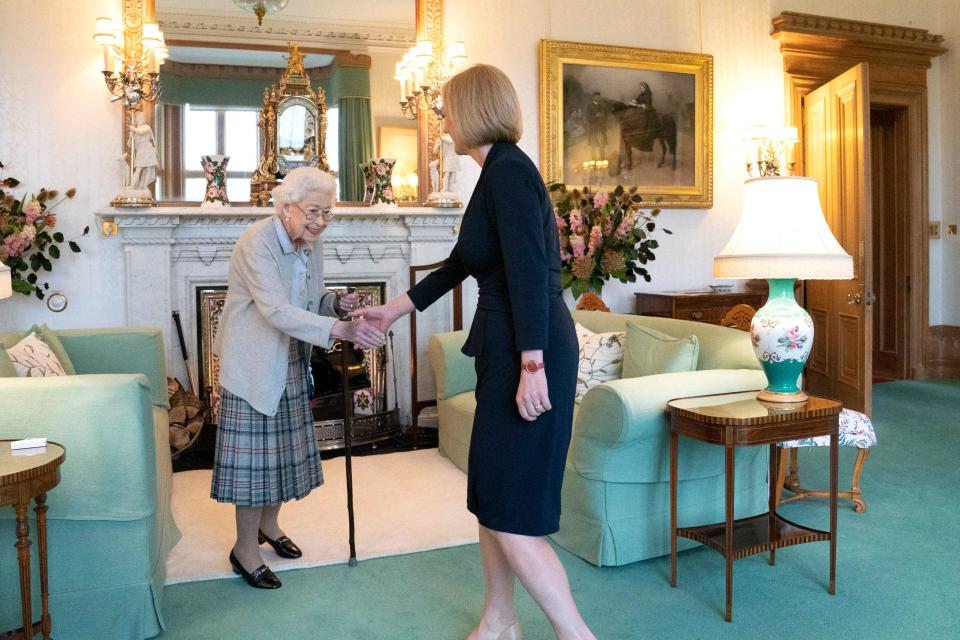
Queen Elizabeth met with newly elected Prime Minister Liz Truss just two days before her death. The meeting, which traditionally is held at Buckingham Palace, is an opportunity for the sovereign to officially ask the incoming prime minister to form a government in her or his name.
The sovereign also officially dissolves previous governments ahead of national elections. But he or she will steer far clear of political opinions.
"The queen notably had no official opinion on Brexit," the successful vote that saw England leave the European Union, says Clelland. "The monarchy is still here precisely because they've remained above those kinds of decisions."
For decades, the queen served as a trusted adviser to prime ministers dating back to Winston Churchill, offering a unique sounding board to them all.
►Royal news right in your inbox: Subscribe to Keep Calm and Carry On, a newsletter answering all of your questions about the royal family following Queen Elizabeth's death.
The British monarch is head of state in increasingly fewer countries
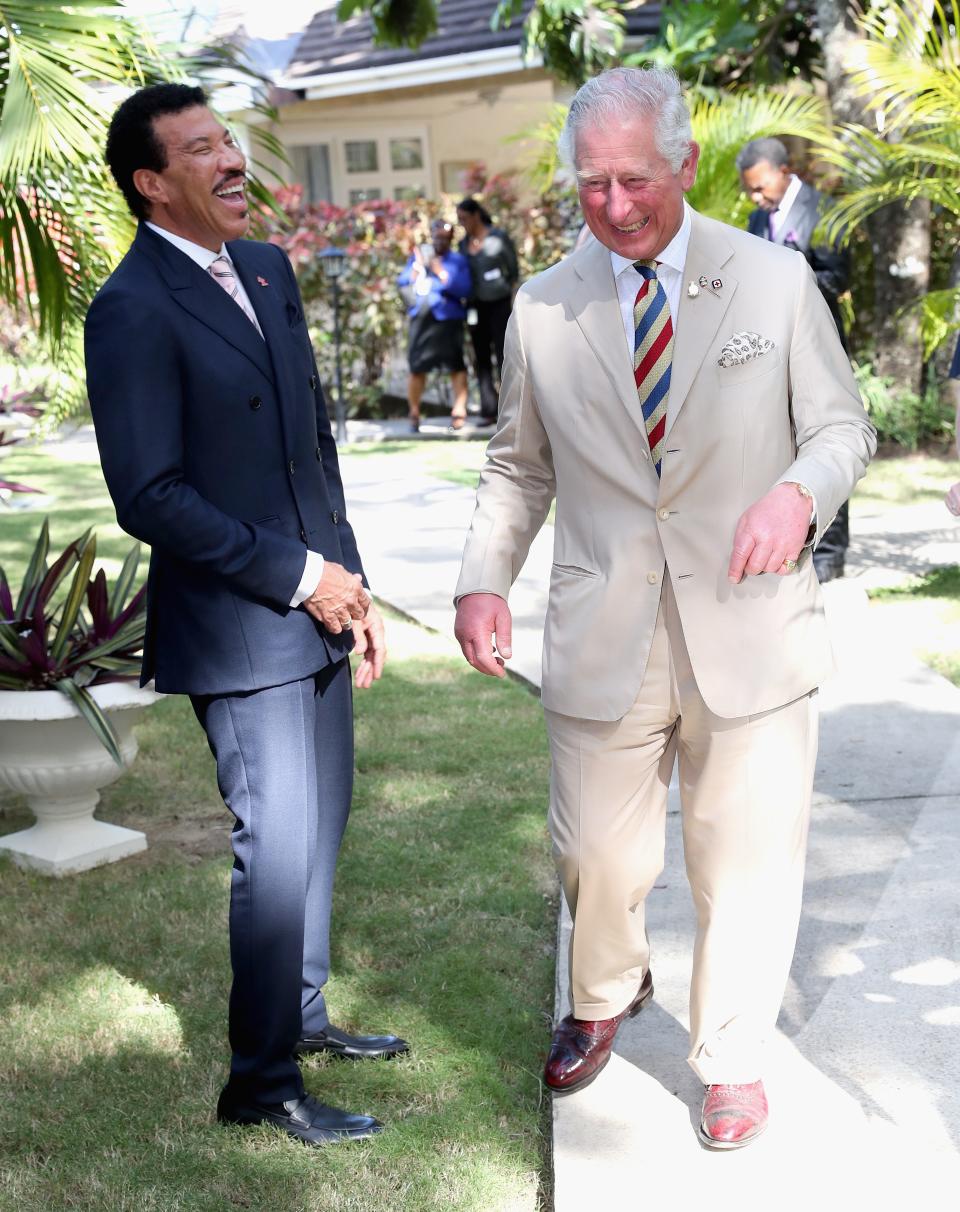
Where there once was a far-flung and often exploitative British Empire, today there is a Commonwealth of Nations, 56 independent countries that were part of that empire.
Many of those have broken entirely from the monarchy, most recently Barbados, which last fall, with then-Prince Charles present, became a republic. Instead of being tied to the British king or queen, they elect their head of state but remain as members of the Commonwealth.
But Canada, Australia and New Zealand, among a dozen other nations, still consider themselves constitutional monarchies. While the king is regarded as head of state there, the sovereign’s role remains largely symbolic.
"The queen embraced this idea of a family of nations, a way to essentially keep the notion of an empire while preserving effective ties to ex-colonial subjects," says Nicoletta Gullace, associate professor of history at the University of New Hampshire.
What's next for the young royals? King Charles names Will and Kate the Prince and Princess of Wales
Will the powers of a monarch shrink more during King Charles III's reign?
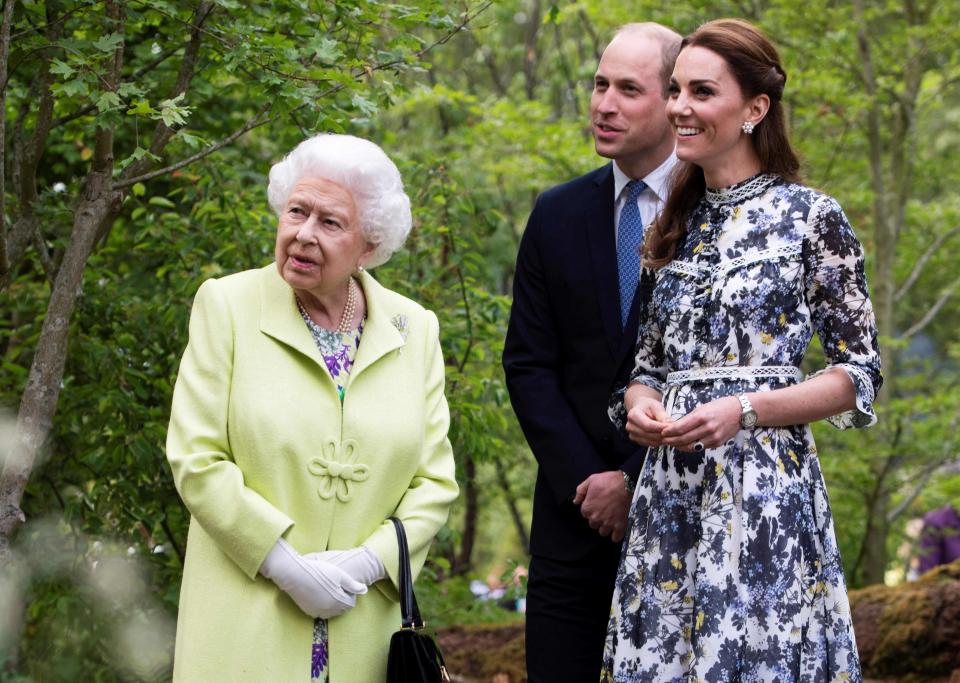
The upheavals faced by the monarchy during Queen Elizabeth's 70-year reign were significant. Personal scandals coupled with a growing sentiment that questioned the purpose of a monarchy suggest that King Charles may well look to further scale things back, perhaps limiting key engagements to himself and the heir apparent, Prince William, experts say.
“We’ll likely be seeing a smaller group representing the crown, and there will be pros and cons to that,” says Carolyn Harris, historian at the University of Toronto and author of “Raising Royalty: 1,000 Years of Royal Parenting.”
On the con side, Harris foresees less frequent and shorter visits to the Commonwealth countries, which could lead to more nations becoming republics.
On the pro side: “There will be a stronger line between who is representing the country and who is simply related to the royal family,” says Harris. “That’s in contrast to Queen Elizabeth, who brought in many cousins to help with tours and events as she oversaw a transition from empire to commonwealth.”
The next generation: Could Prince Harry and Duchess Meghan's children gain royal titles now?
This article originally appeared on USA TODAY: Fact check: Did Queen Elizabeth II have any power? Does King Charles?

